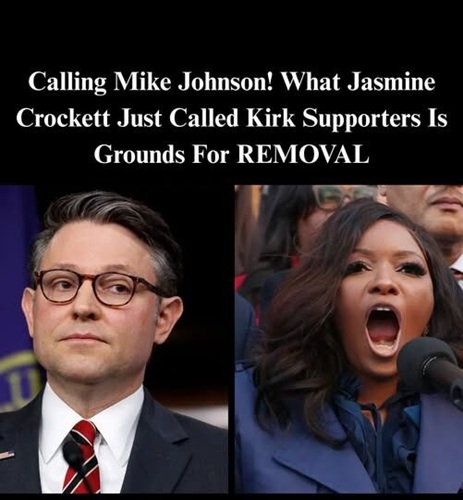
Washington, D.C. — U.S. Rep. Jasmine Crockett Faces Backlash After Comparing Trump to Hitler
U.S. Representative Jasmine Crockett (D–TX) is at the center of a heated political storm after defending her remarks comparing former President Donald Trump to Adolf Hitler during a recent interview on The Breakfast Club, a nationally syndicated radio program. The comments have struck a particularly sensitive chord, coming in the wake of the shocking assassination of conservative commentator Charlie Kirk in Salt Lake City, Utah—a tragedy that has reignited a national conversation about how political rhetoric can shape an environment conducive to violence.
Crockett Explains Her Comments
During the interview, Rep. Crockett acknowledged that her comparison was deliberately provocative. She defended her statements as a critique of patterns in Trump’s rhetoric and behavior. She cited multiple examples, including his infamous 2016 campaign claim that he could “stand in the middle of Fifth Avenue and shoot somebody” without losing support, as well as his repeated encouragement of aggressive behavior at political rallies.
“I understand some people feel my words were strong,” Crockett said. “But we cannot ignore that Donald Trump’s rhetoric has often normalized hostility and even glorified violence. My comparison to Hitler was not literal—it was meant to highlight authoritarian tendencies I find deeply concerning in his leadership.” She emphasized that her goal was not to inflame tensions, but to spark reflection on how dangerous political speech can erode democratic norms and deepen polarization.
Political Reactions and Criticism
Crockett’s remarks triggered an immediate backlash, especially from Republican lawmakers and conservative commentators. Critics accused her of using the same kind of extreme rhetoric that Democrats routinely denounce. Many argued that invoking Hitler—even metaphorically—is irresponsible and risks further dehumanizing political opponents.
“Equating a former president to one of history’s most evil dictators crosses a moral and political line,” a Republican House member told Politico. “Especially after a violent act, language like this only fans the flames.”
Even some Democrats expressed unease with the comparison, acknowledging Crockett’s broader point while cautioning that historical analogies can be incendiary or misinterpreted. Observers also pointed to the increasingly hostile rhetoric from leaders across the political spectrum as a contributor to today’s toxic discourse.
Even President Joe Biden has faced criticism for remarks during his campaign, including a joke about wanting to “take Trump behind the gym,” which some say illustrates how casual language can escalate political tension.
The Shadow of Tragedy
The debate over political speech has taken on new urgency following the murder of Charlie Kirk, a prominent conservative activist and media figure. The suspect, 18-year-old Tyler Robinson, had reportedly shown signs of political radicalization, though authorities have yet to confirm a motive.
Many commentators see the attack as a chilling example of how extremist views, amplified in online echo chambers or inflamed by heated political rhetoric, can turn deadly. Former President Trump condemned the assassination on Fox & Friends, while also decrying what he called a “dangerous double standard” in evaluating political speech, arguing Democrats often avoid scrutiny for incendiary remarks while Republicans are disproportionately blamed.
The Line Between Criticism and Harm
Crockett’s defense of her comments has thrust a critical question into the spotlight: where does legitimate political critique end and dangerous rhetoric begin? In a democracy, strong language and passionate disagreement are expected—but when critique crosses into demonization, the consequences can spill into real-world violence.
By standing firm, Rep. Crockett has ensured that the debate over political language will remain front and center. For a nation grappling with deep divisions and rising politically motivated violence, her comments—and the storm they’ve ignited—serve as a sobering reminder: words matter. They shape public opinion, influence behavior, and in extreme cases, can help create an environment where violence no longer seems unthinkable.


